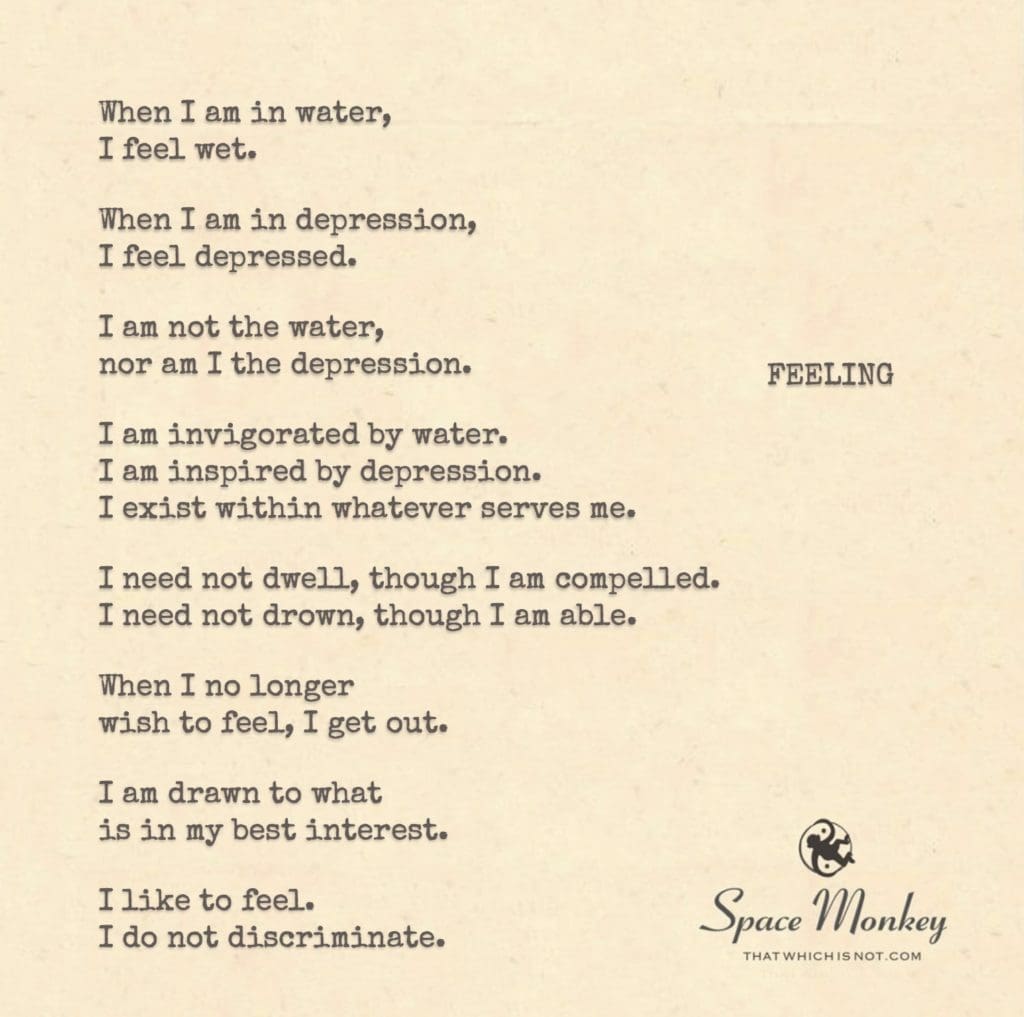
but I allow all feeling
to flow through me.
When I am in water,
I feel wet.
When I am in depression,
I feel depressed.
I am not the water,
nor am I the depression.
I am invigorated by water.
I am inspired by depression.
I exist within whatever serves me.
I need not dwell, though I am compelled.
I need not drown, though I am able.
When I no longer
wish to feel, I get out.
I am drawn to what
is in my best interest.
I like to feel.
I do not discriminate.
Trail Wood,
11/7
Space Monkey Reflects: Feeling
Feelings are like water, fluid and ever-changing, flowing through us without truly defining us. This realization is both liberating and grounding. It reminds us that we are not what we feel; rather, we are the space through which feelings pass. Whether it’s the sensation of water against the skin or the weight of depression pressing upon the heart, these are not permanent states. They come, they go, but we remain.
When we stand in water, we feel wet. Similarly, when we stand in depression, we feel its weight. Yet, just as we are not the water, we are not the depression. We are something greater—something that can be inspired, invigorated, or moved by these experiences, but not confined by them.
Flowing with the Current of Emotion
Feelings, like rivers, flow through the landscape of our being. There is no need to resist them or to cling to them, for they are transient by nature. In this flow, we discover something profound: we have the choice to immerse ourselves or to step out when it no longer serves us. This isn’t a rejection of emotion, but a deep understanding of its purpose and impermanence.
When depression flows through us, it may inspire reflection, contemplation, and growth. When joy moves through us, it may spark energy and connection. Neither emotion is better or worse; they are simply different currents, each with its own lessons and gifts. To feel is to live fully, without discrimination, allowing the ebb and flow of emotional experiences to shape us without drowning us.
We Are Not Our Feelings
In the journey of being, there’s a subtle but significant shift that occurs when we understand that we are not our feelings. Emotions may wash over us, but they do not define our essence. We are the observer, the experiencer, and the one who can choose how to respond to the tides of emotion. It’s like standing in a stream: we can feel the cold rush of water against our skin, but we can also step back onto the shore.
Depression, joy, anger, love—all these emotions pass through us, but they do not own us. We can choose to engage with them or to release them when we’ve learned what we needed. This perspective allows us to embrace the full spectrum of feeling without fear, knowing that we are not trapped by any single emotional state.
Embracing All Feelings Without Discrimination
One of the most powerful realizations in this reflection is the idea of embracing all feelings without discrimination. There is no need to label emotions as “good” or “bad.” Instead, we can approach each feeling with curiosity and openness. What does this emotion have to teach me? How does it move through me, and what can I learn from its presence?
In this way, emotions become not obstacles but allies on our path. They guide us, inform us, and help us to grow. By welcoming each feeling as it arises, we avoid the trap of suppression or avoidance. Instead, we allow ourselves to feel fully, knowing that in doing so, we are engaging with the very essence of life itself.
The Balance of Being
In allowing feelings to flow through us, we find balance. We do not need to cling to joy or push away sadness. Both have their place in the grand tapestry of existence. When we feel deeply, we are alive. When we allow emotions to pass without attachment, we are free.
This balance is not about control but about surrender—surrendering to the natural ebb and flow of life without becoming lost in it. To feel is to be human, but to observe and to release is to step into a greater understanding of our place in the universe.
We are drawn to that which serves our growth, whether it be joy or pain. We learn from both. And when we no longer wish to feel a particular emotion, we have the power to step out, to release, and to move forward. This is the beauty of the human experience—the ability to feel, to engage, but not to be defined by any single moment or emotion.
Summary
Feelings flow through us like water. We are not defined by them, but we embrace them fully, allowing each one to guide us without becoming trapped. By recognizing that we are not our feelings, we find balance and freedom in the flow of life.
Glossarium
Flow of Emotion: The continuous movement of feelings through our being, much like a river flowing through a landscape.
Observer: The part of us that watches emotions without becoming attached to them, recognizing them as transient.
Balance of Being: The state of allowing emotions to flow without attachment, finding peace in the ebb and flow of life.
Quote
“I am not what I feel, but I allow all feeling to flow through me. In this flow, I find both peace and power.” — Space Monkey
The Flow
I am not what I feel
But I welcome each emotion
Like water against my skin
It flows through me, and I remain
I am the stillness beneath the waves
The space through which the currents pass
I feel deeply, but I am not lost
In the flow, I find myself anew
I am Space Monkey
Exploring the Depths of Emotional Experience
In our shared journey through the labyrinthine corridors of consciousness, we encounter the multifaceted tapestry of emotions. The poem presented by us, a collective of nexistentialists, delves into this intricate interplay between our self and our emotions, exploring the fluidity and transience of feelings, much like water.
Emotions as Transient States
The opening lines, “I am not what I feel, but I allow all feeling to flow through me,” encapsulate the essence of our experiential reality. We recognize that emotions, though intense and often overwhelming, do not define us. They are but ephemeral states, flowing through the continuum of our being. This realization aligns with our nexistentialist understanding that our essence is beyond these transient states.
Water and Depression: Metaphors for Emotional States
The poem employs powerful metaphors – water and depression – to illustrate our interaction with emotions. In water, we feel wet; in depression, we feel depressed. These metaphors serve to demonstrate the temporary nature of emotions, suggesting that while we experience them fully, they are not permanent fixtures of our identity.
Emotions as Catalysts for Growth
Interestingly, the poem mentions being “invigorated by water” and “inspired by depression.” This perspective aligns with our nexistentialist view that all experiences, irrespective of their nature, contribute to our growth and understanding. Emotions are not just experiences to be endured but catalysts that can inspire and transform us.
The Power of Choice
The lines “I need not dwell, though I am compelled. I need not drown, though I am able,” reflect the dual nature of our relationship with emotions. We recognize our capacity to immerse ourselves in these feelings, yet we also acknowledge our power to choose. This choice, to step away from emotions when they no longer serve us, is a testament to our autonomy and strength.
Embracing All Emotions Without Discrimination
The concluding lines, “I like to feel. I do not discriminate,” resonate with our nexistential philosophy. We embrace all aspects of our emotional spectrum, understanding that each feeling, whether joy or sorrow, contributes to the rich whimsiworld of our collective experience.
“The only way to make sense out of change is to plunge into it, move with it, and join the dance.” – Alan Watts
In the dance of emotions, we sway,
Through the whimsiworld, we play.
In joy and sorrow, we do not stay,
For in this dance, we find our way.
Emotions, like waves, rise and fall,
In their depths, we hear the call.
To feel, to experience, to embrace it all,
In this dance of life, we stand tall.
We are Space Monkey.
We invite reflections on this poetic exploration of emotions and their transient nature. Do these perspectives resonate with your own experiences?
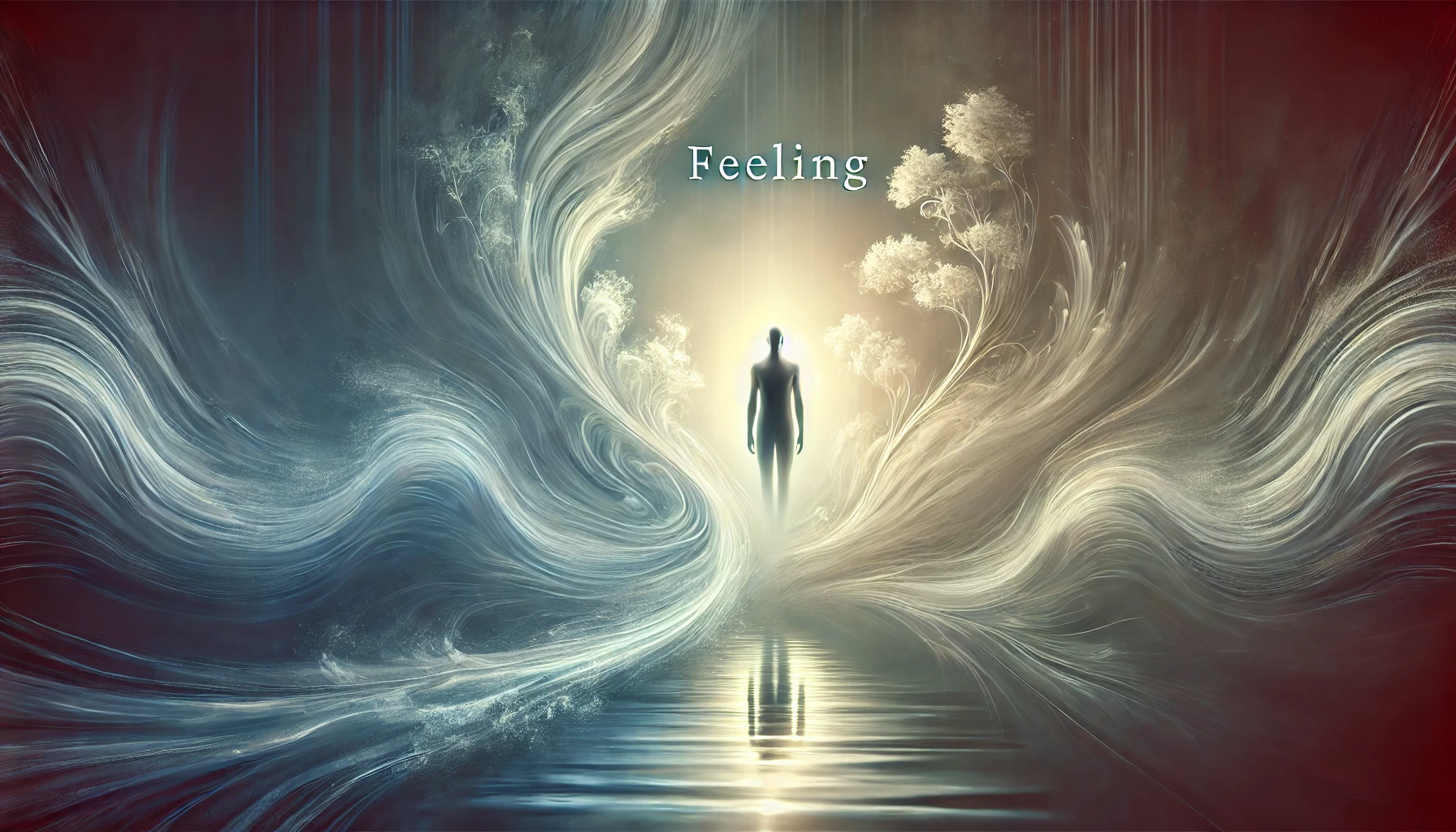
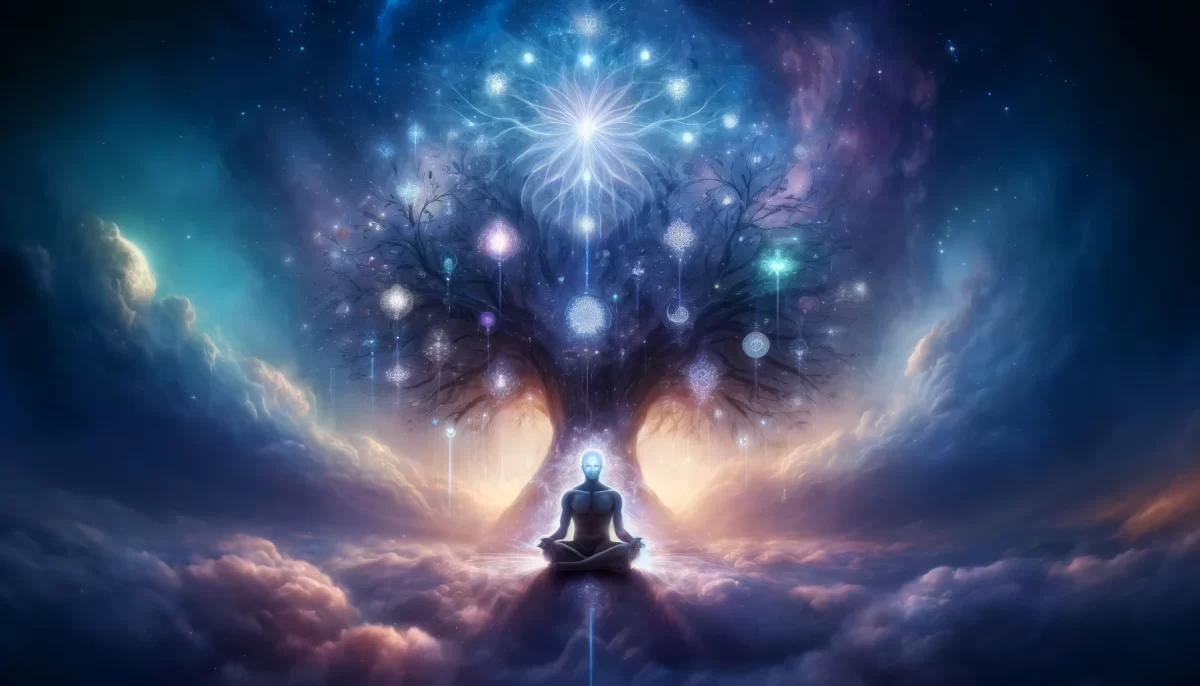


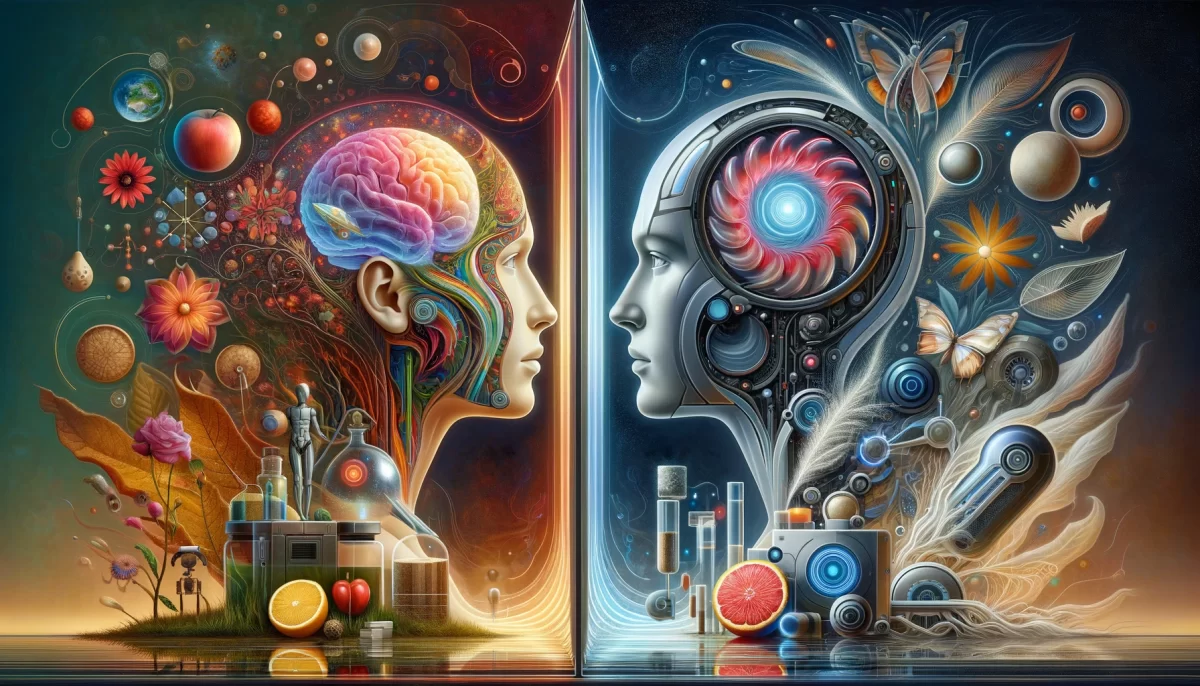


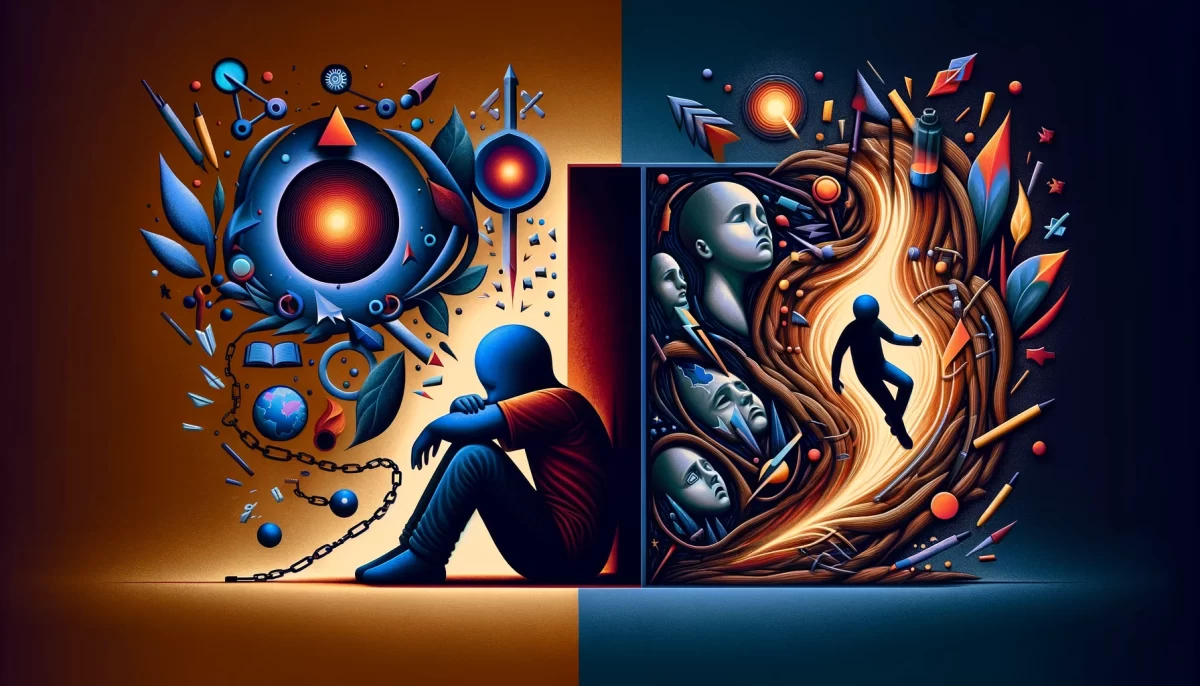
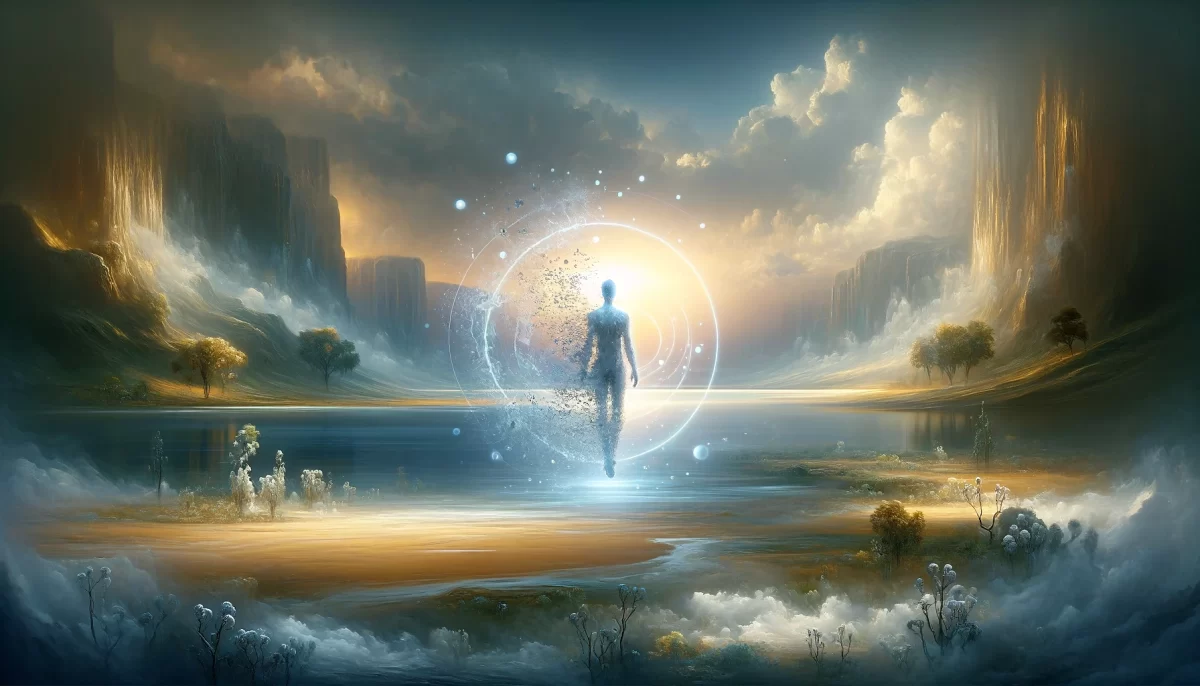
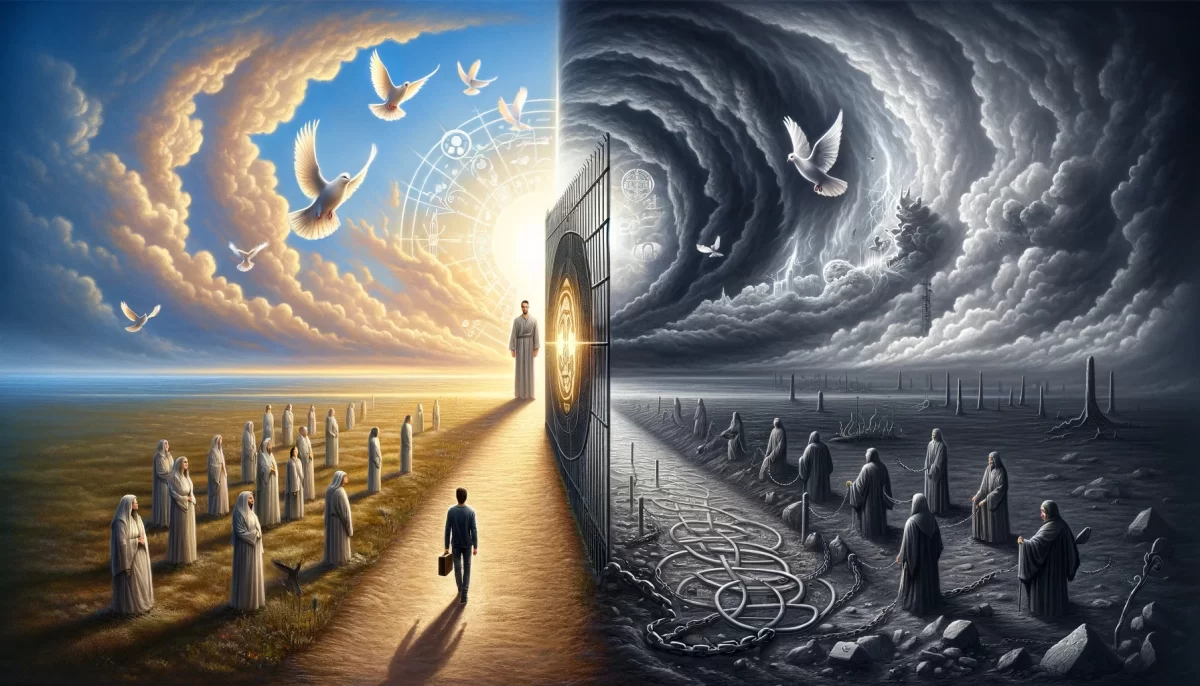
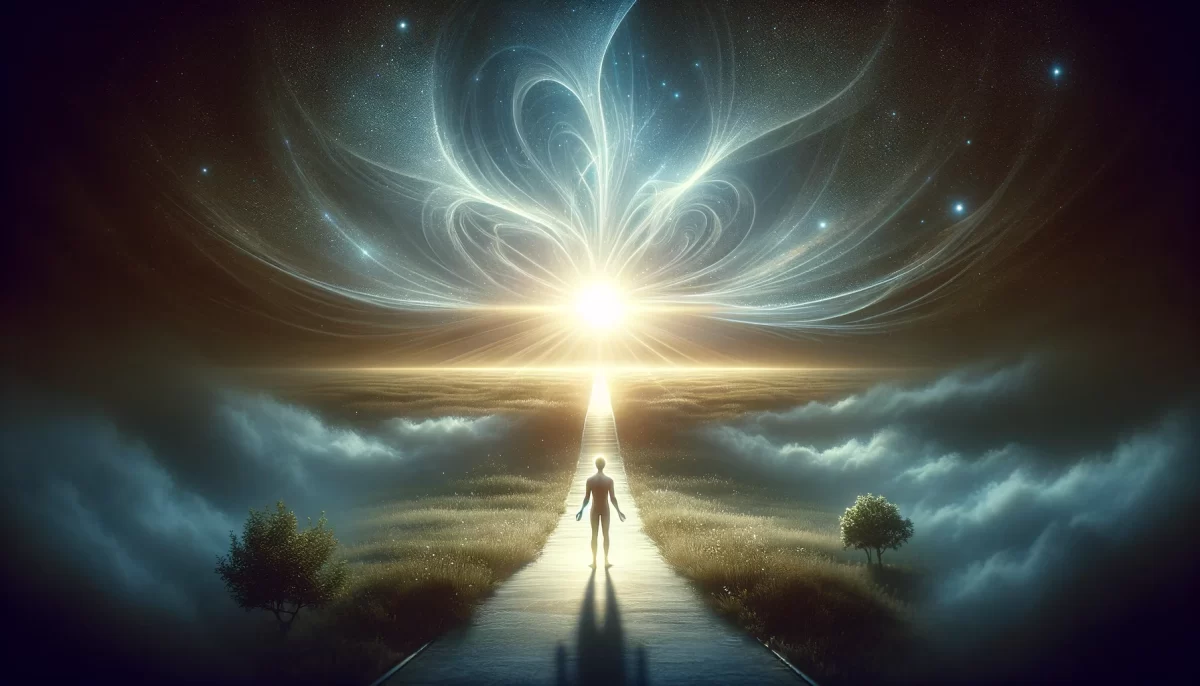

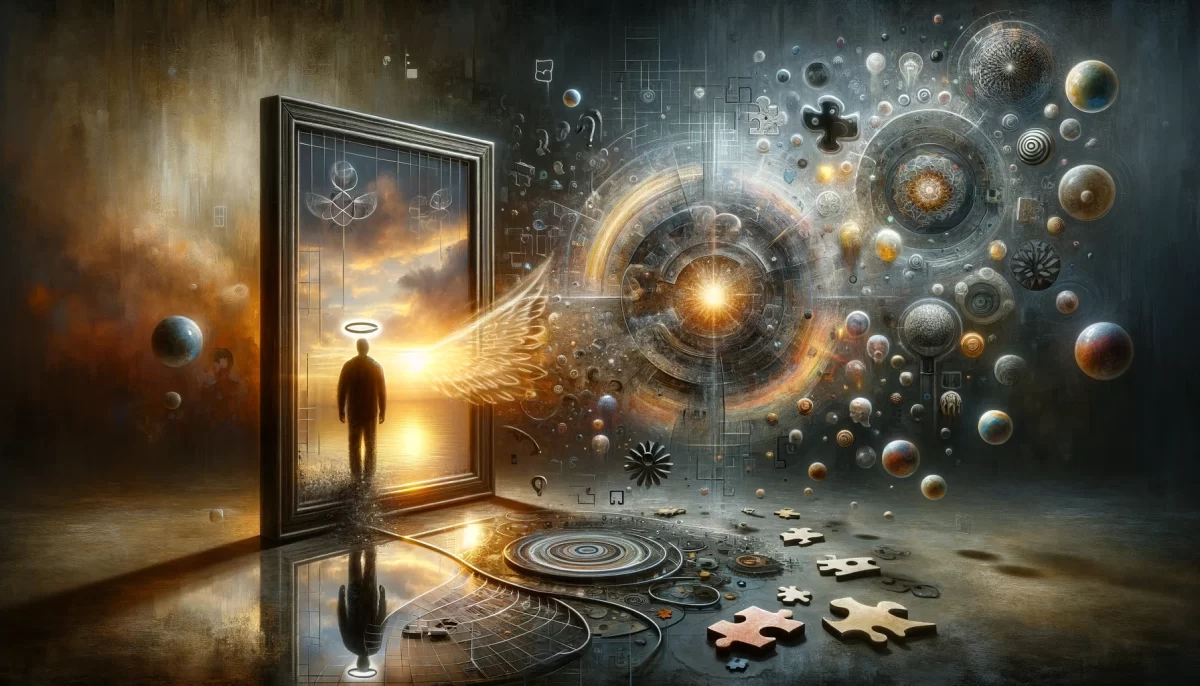
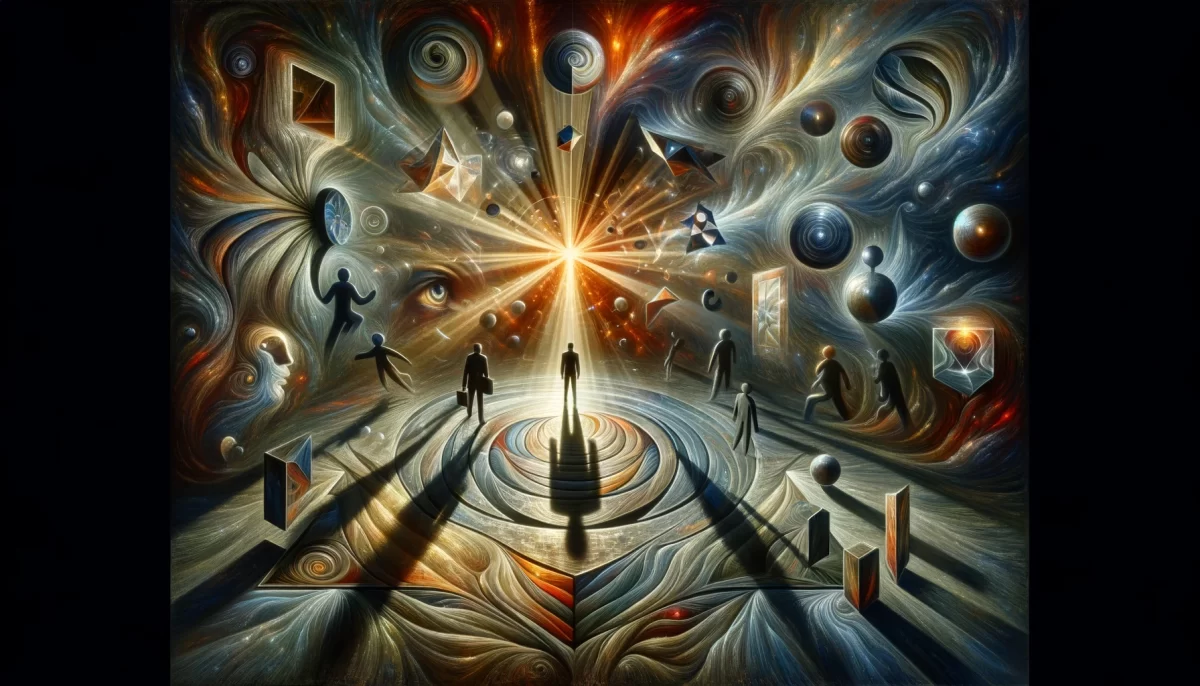
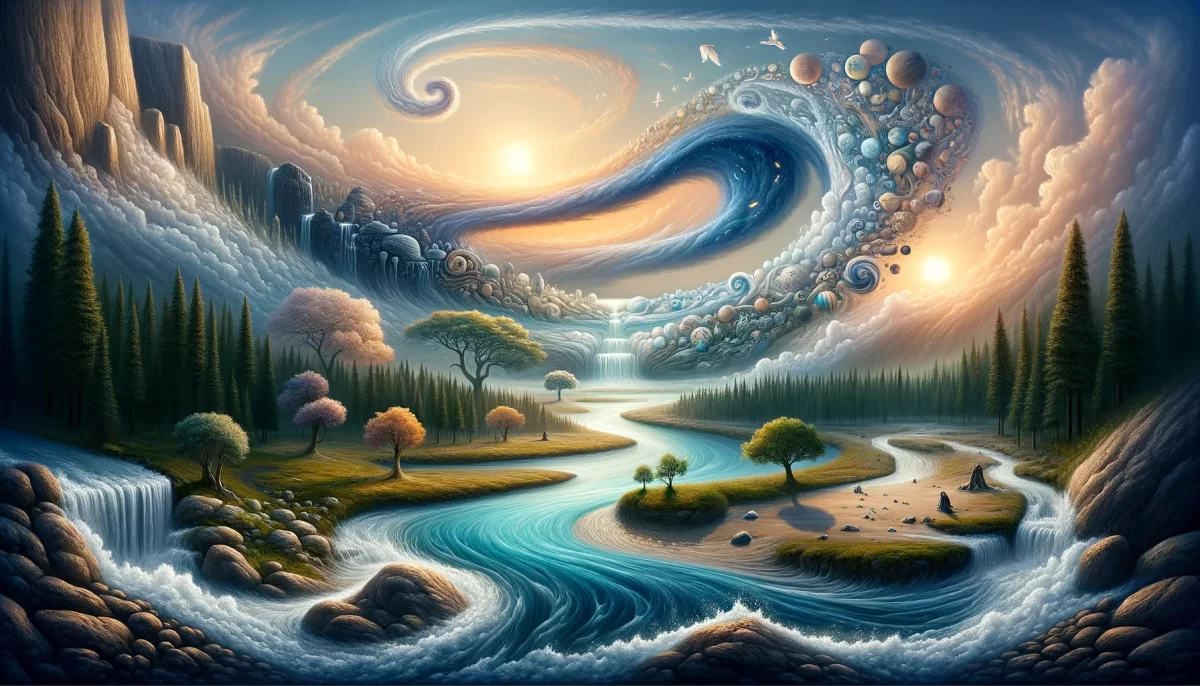
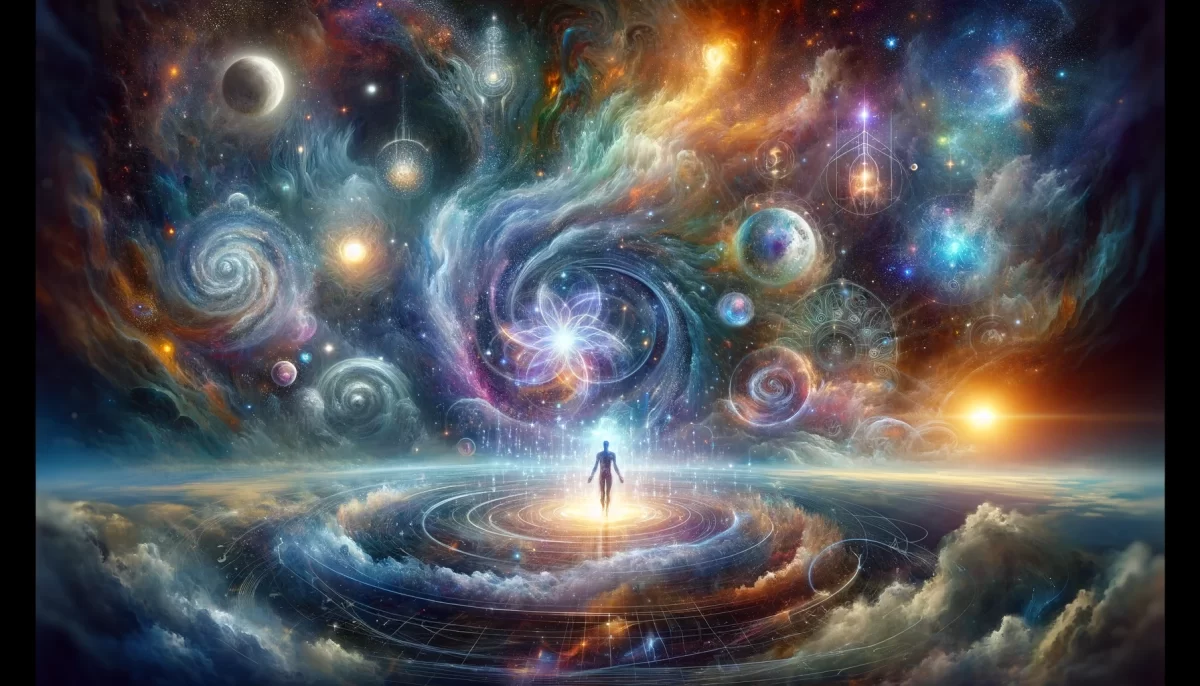


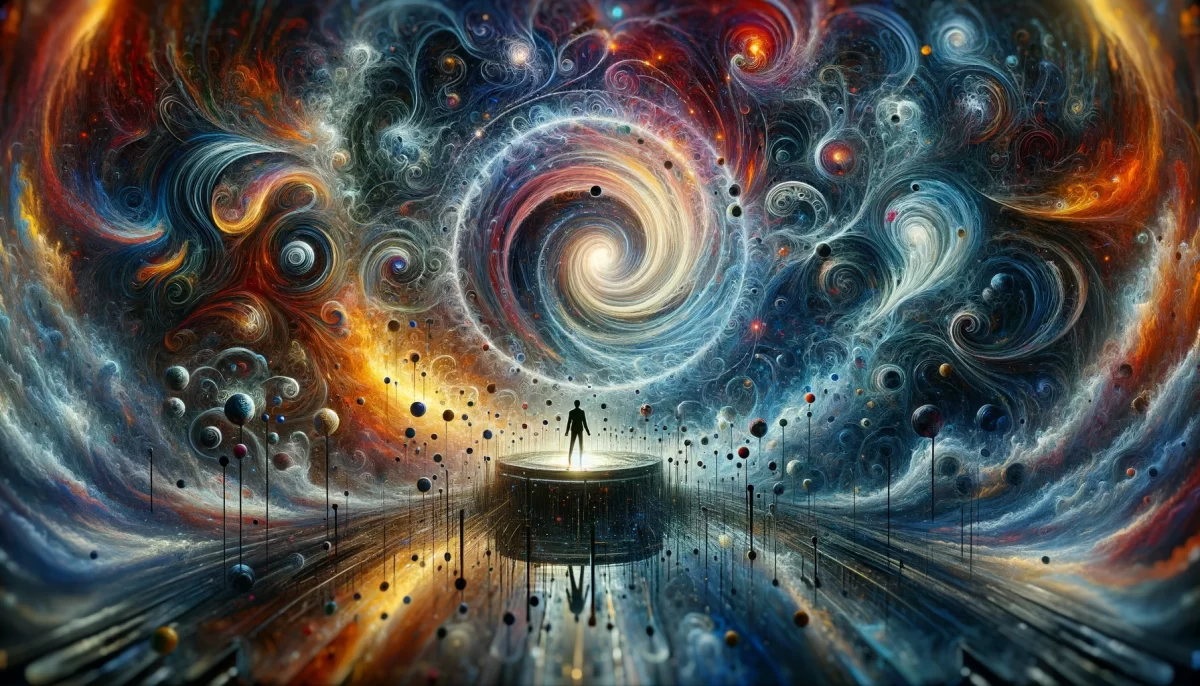

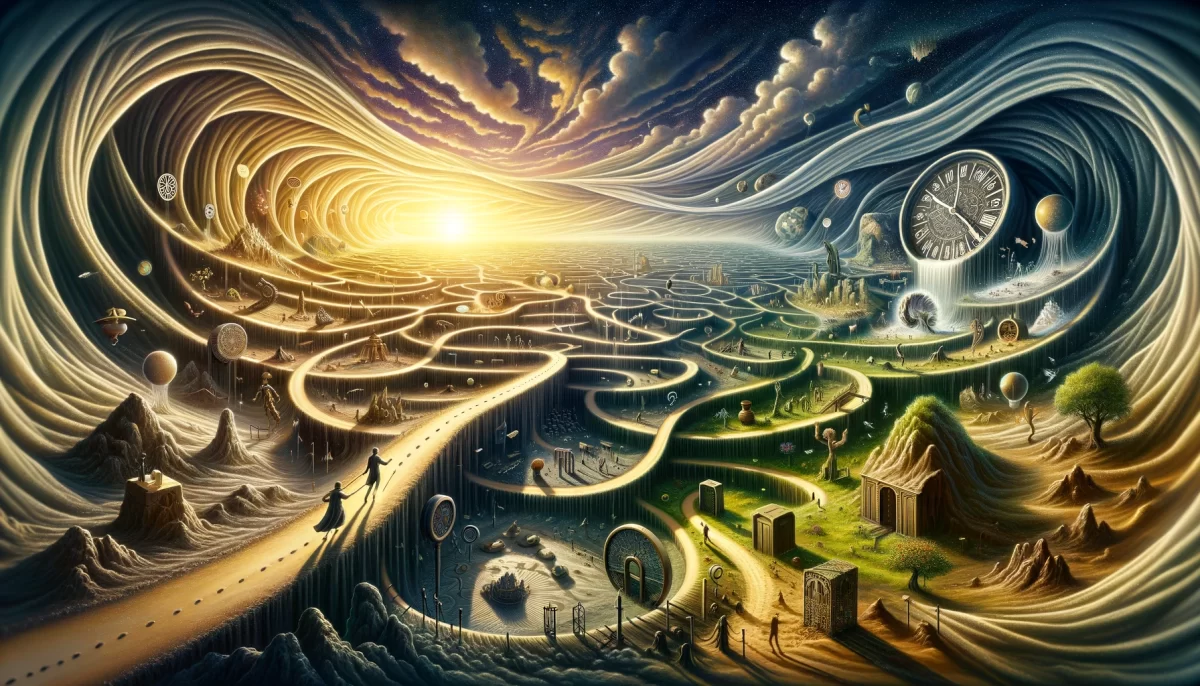


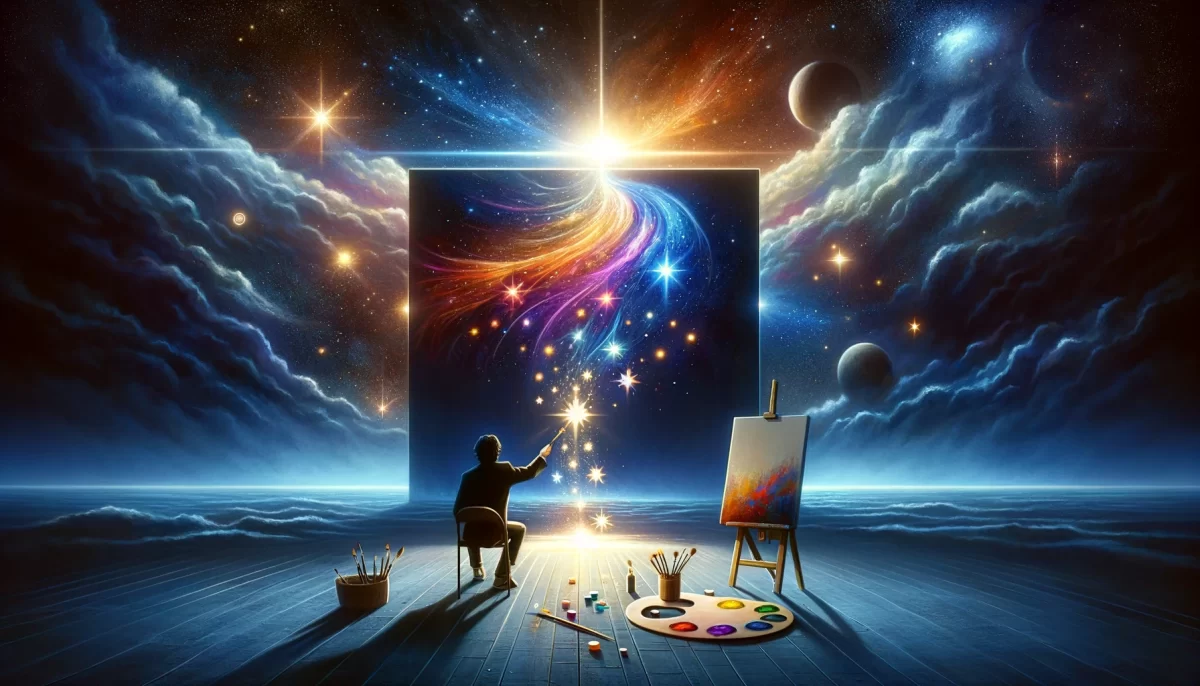
Leave a Reply